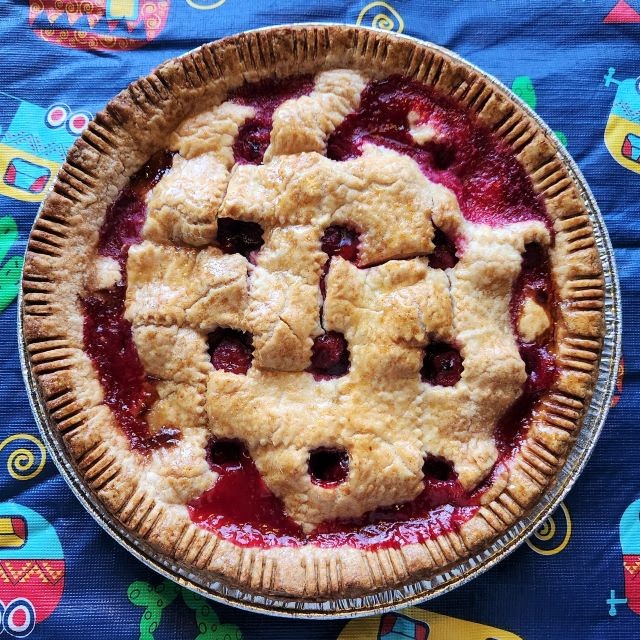What is an “emotional pie”? An emotional pie is a visual that I developed many years ago. What I have found over the last 40 years in working with people is that most have no idea how much time they waste on things they don’t consider important.
Visualize a circle. Now think of that circle as a pie that you cut into slices. This is your emotional pie.
Your Emotional Pie
In meeting with clients, I would ask them how they spend their day, their “emotional pie”. I wanted them to identify the people and life events that take up their emotional energy. They would usually identify the following (in no particular order):
- Self
- Significant other
- Children
- Work
- Family of origin (parents, grandparents, siblings, cousins)
I would then ask clients to assign a percentage to how much time they feel they spend on an average workday on each of those people and life events.

- Self 15%
- Significant other 25%
- Children 50%
- Work 50%
Total = 140%
Well, that can’t be accurate! You can’t have an emotional pie that equals 140%! Now do you understand why you can feel so overwhelmed?
There are many people and things swirling around in your head every day. For example, you are at work and focused on a project. Then you receive a call from school saying your child is sick and needs to be picked up. Priorities change.
Determining Your Emotional Pie
If you only have space in your head for a 100% emotional pie, how will you determine the size of each slice of pie? Do you want to fill your head with “junk”? For example, anger, your ex significant other, your family of origin or work? How much emotional energy are you putting into yourself? 5%? 15%? If you do not feel emotionally healthy, you will have nothing to give to anyone else.
Ideal vs. Actual
It is easy to get caught up in what you ideally wished your pie looks like vs. how it actually looks. For most people these are two entirely different emotional pies. They may SAY they want to put themselves first, but the reality is that their pets receive more attention than they give themselves. You may SAY you put more emphasis on your current significant other, but you are still spinning about feelings of betrayal, abandonment and jealousy involving an ex significant other!
You are not able to sustain having an emotional pie at 165%. How will you determine what stays and what goes? Reducing the amount of time you take for yourself is not going to be a sustainable answer. Putting your children above you will not be a sustainable answer. Certainly, focusing more on work than your significant other is not sustainable for your relationship.
Diagram Your Emotional Pie
Where do you put your emotional energy? Is it on what you value, or where you think it should be?
A. Use the following list, identify how you would like to place your energy in your emotional pie:
- Yourself. Identify how much emotional energy per day you want to devote to yourself. This could be exercising, reading, playing with a pet, spirituality, religion, anything that builds you up.
- Your family. Identify how much emotional energy per day you want to devote to your family. This could actually be different categories, for example, significant other, children, family of origin (parents, siblings), your pets (yes, they are considered family).
- Your friends. Identify how much emotional energy per day you want to devote to maintaining or obtaining friends. This category may actually overlap with family.
- Job/work/employment/making money. Identify how much emotional energy per day you want to devote to work.
- Life. This is a catch-all category that includes cooking, cleaning and yardwork. All of those mundane things that most people spend way too much time doing. Identify how much emotional energy per day you want to devote to this category as a whole.
- Unpleasant feelings. This is a category for many people. They feel anger and resentment about past relationships, injustice, elections, etc. This is the category where you put all of those unpleasant feelings and thoughts you are not willing to let go. The “catch-all drawer”.
- Other. Your choice. Whatever else is going on. Maybe a medical issue?
B. Now that you have these categories identified, decide what percentage of your day you want to devote to each category. For example, you want to devote 10% of your day to yourself. You want to devote 20% of your day to your family, etc.
C. Add up the percentages. Do they add up to less than 100%? Great! You can redistribute your percentages to equal 100%. Do your percentages add up to more than 100%? Time to figure out what deserves less energy in your emotional pie.

You will probably be surprised with what you learn about how you are spending your emotional energy. It can be very difficult to obtain your emotional pie goal of 100%. One of the things you may learn is why you feel so overwhelmed and can’t seem to make time for the things and people who are important to you.
Take Away Point
Remember, this is YOUR emotional pie. You get to choose how to fill it.
With warmest regards,
Thank you so much for reading this blog. If you enjoyed the content, please check out other blogs at:
https://relationshipsrelearned.com
https://rvingnomads.com
To be notified of future posts, please enter your email address and click on the Subscribe button.











